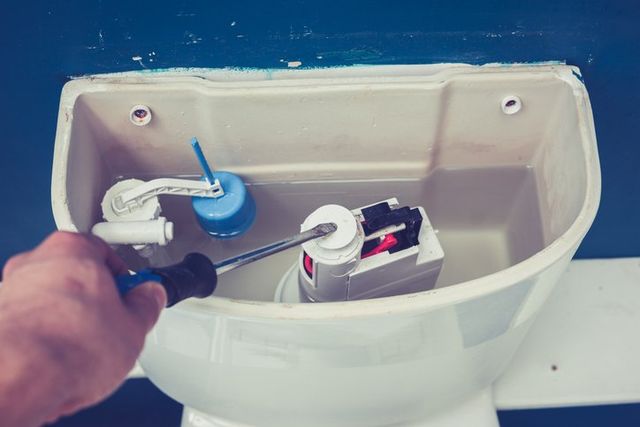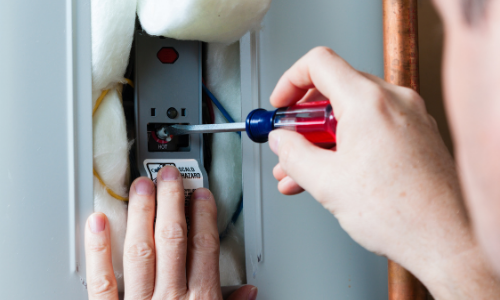Handling the Routine Hot Water Heater Crisis Events
Handling the Routine Hot Water Heater Crisis Events
Blog Article
We have stumbled on this great article involving Is Your Water Heater Leaking? listed below on the net and thought it made sense to share it with you here.

A hot water heater is just one of the most crucial fundamental devices that can be found in a residence. With water heaters, you don't require to go through the tension of heating water manually every time there is a need to take a bath, wash, or the recipes. There is constantly an opportunity that your water heating unit would act up as with many mechanical gadgets.
It is very important to note any kind of little malfunction and also tackle it swiftly prior to points get out of hand. A lot of times, your water heater begins to malfunction when there is an accumulation of sediments as a result of constant usage. As a safety measure, routine flushing of your water heater is suggested to stop sediment buildup as well as avoid practical failure.
Common water heater emergency situations and how to deal with them
Too little hot water
It may be that the water heating system can't support the warm water need for your apartment or condo. You might update your water heating unit to one with a bigger ability.
Fluctuating water temperature level.
Your water heating unit might start producing water of different temperature levels typically ice scalding or cold warm. There might be a requirement to replace either the thermostat or the heating system of your water heating unit.
Leaking hot water heater storage tank.
A dripping container could be an indication of deterioration. It might cause damage to the flooring, wall surface as well as electric gadgets around it. You might even be at danger of having your house swamped. In this circumstance, you need to shut off your water heater, allow it to cool down, and carefully seek the resource of the trouble. At times, all you need to do is to tighten a few screws or pipe connections in cases of minor leaks. If this doesn't function and the leakage continues, you could need to utilize the services of a technician for a proper substitute.
Discolored or odiferous water
You require to know if the concern is from the container or the water resource when this happens. If there is no funny smell when you run cold water, after that you are specific that it is your hot water heater that is defective. The smelly water can be triggered by rust or the accumulation of bacteria or sediments in the hot water heater container. You can attempt flushing out your storage tank or changing the anode if the issue lingers when you observe this. The function of the anode is to clean out microorganisms from your container. Since the anode pole substitute calls for a thorough understanding of your water heater, you will certainly require the aid of a specialist.
Conclusion
Some home owners overlook little caution and minor faults in their hot water heater system. This just brings about further damage as well as a feasible total malfunction of your device. You ought to manage your hot water heater mistakes as soon as they come near stay clear of more expenses as well as unneeded emergency troubles.
With water heating units, you don't need to go with the stress and anxiety of home heating water manually every time there is a demand to take a bath, do the washing, or the dishes. It may be that the water heater can't support the warm water demand for your home. Your water heating system might start creating water of different temperatures normally ice scalding or cool warm. If there is no amusing odor when you run cold water, then you are specific that it is your water heater that is faulty. The smelly water can be created by corrosion or the accumulation of germs or debris in the water heating system storage tank.
Water Heater Burst: Why This Happens And What To Do Next
Water Heater Explosion Warning Signs
Since storage water heaters are made of metal and store large volumes of heated water, they carry an increased risk of leaking or even exploding as they begin to rust at the fittings and seams over time. If the thermostat controlling the water temperature within the tank is faulty, or if mineral buildup inside the water heater prevents the thermostat from sensing the water’s temperature correctly, the water could become overheated. This will expand its volume within the tank, causing it to press at the tank’s fittings and seams. If these fittings and seams are rusted or corroded, the pressure could result in a leak or even an explosion.
Here are some risk factors and warning signs of an increased risk of water heater leak or explosion:
Your water heater is more than 10 years old. Your water heater makes clanking, banging or rumbling noises as it heats up, indicating that sediment has built up and hardened inside the tank. There is visible rust on the outside of the water heater, especially located at the pipe fittings or the seams that run down the tank. There is rusty water coming from your water heater, indicating that there may be rust building up inside. Your water heater is leaking, which could indicate either a crack somewhere in the tank or a malfunctioning temperature-and-pressure (T&P) relief valve. What To Do When Water Heater Leaks
If you find water dripping or seeping out of your water heater, or pooling around it, it means your water heater is leaking. If you find a leak, it may be best to call a plumbing professional to diagnose the problem and determine how best to handle it. If you choose to tackle it on your own, there are a few things you can do.
TURN OFF THE POWER
Next, shut off the power to the hot water tank at your home’s electrical breaker box. If you don’t shut off the power, the heating elements within the tank could continue to stay hot, which could pose a fire risk.
If you have a gas-powered water heater, you’ll also need to shut off the gas line leading into the tank.
FIND THE LEAK
Now it’s time to determine where the leak is coming from. Likely locations are the T&P valve, the drain valve or one of the pipes or fittings that feed into the top of the tank. If you see any rust or corrosion on the outside of your water heater’s tank, pipes or fittings, these could also be the source of the leak.
REPAIR THE LEAK
Once you determine the source of your water heater leak, you’ll have a better idea of what steps you need to take to fix the problem. It may be a simple fix—such as using a wrench to tighten fittings or replacing the T&P valve—but it may be something more complicated. You may even need to drain the tank, remove the water heater and install a new one.
https://www.abchomeandcommercial.com/blog/water-heater-burst/

As a devoted person who reads on Common Hot Water Heater Problems, I assumed sharing that article was a smart idea. Make sure you take a moment to promote this post if you enjoyed it. I appreciate reading our article about The Importance of Water Heater Maintenance.
Overflow resolution available. Report this page